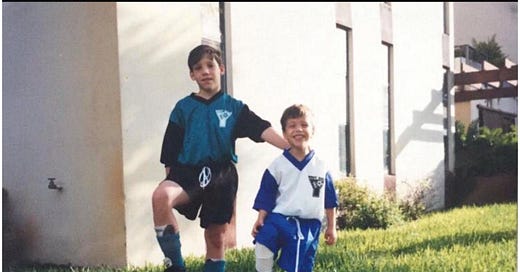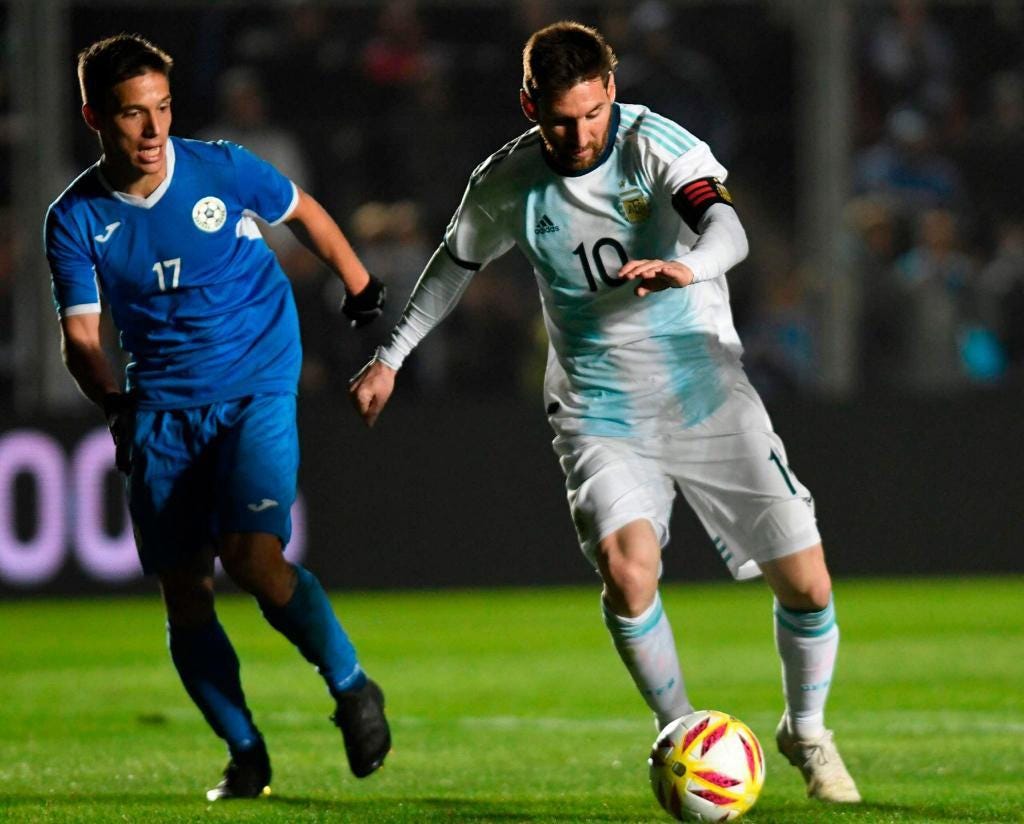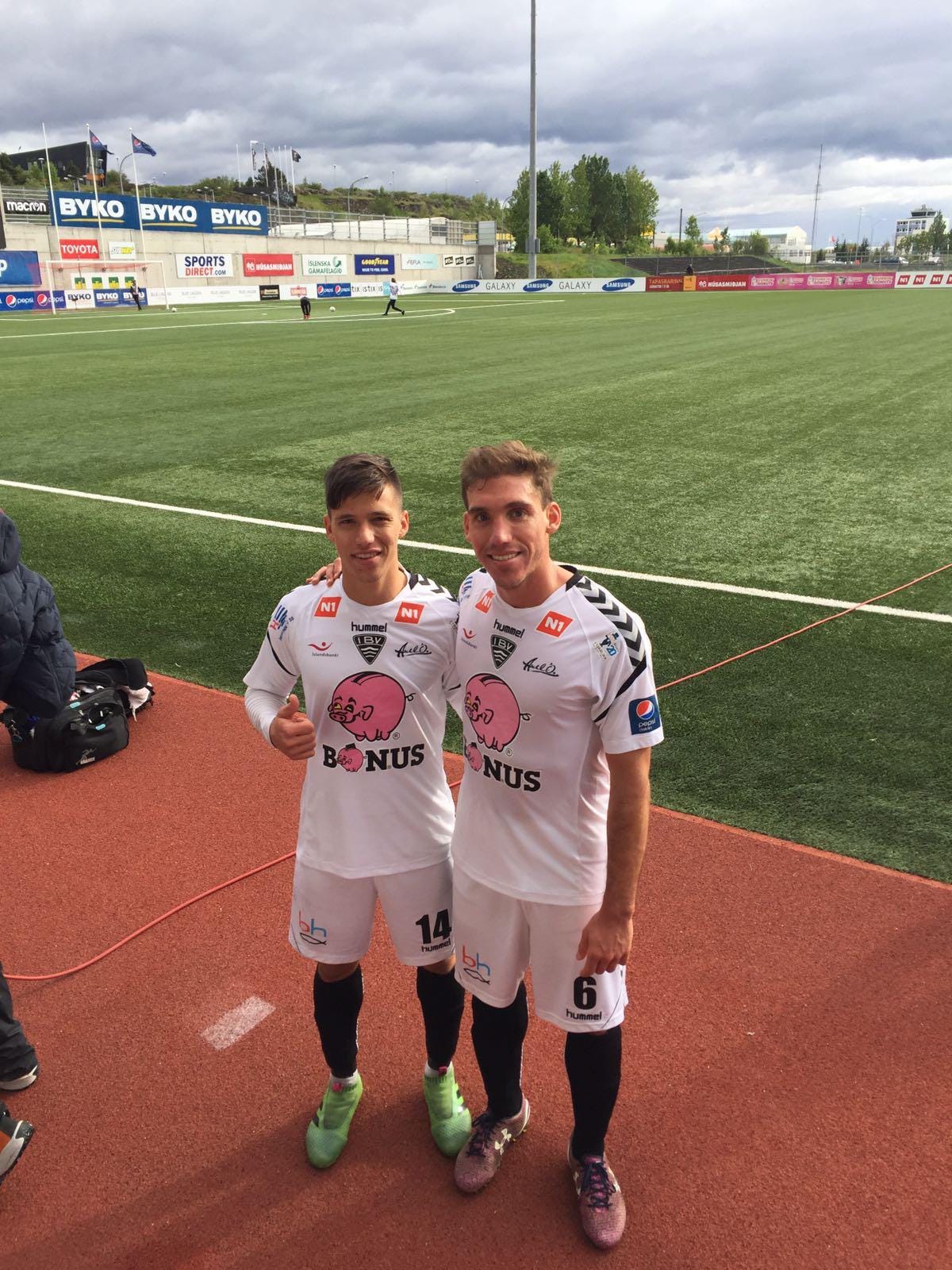🇺🇸-🇸🇻 (+🇳🇮) One family, two teams. How Miami's Punyed brothers ended up representing different Concacaf nations
Though he represents another country, Renato will be cheering Pablo on against the USMNT from the stands Wednesday.

This week’s United States men’s national team friendly against El Salvador seems a bit random, the soccer version of a food truck pop-up. If you know, you know, but it probably won’t stick in the memory for years to come.
But when the match was announced, Pablo Punyed couldn’t believe his luck.
“It’s definitely, for all intents and purposes, a game made for me, right?” he said with a laugh when we Zoomed this weekend. “I was born in Miami, I represent El Salvador, my father’s country, and I get to play a game in South Florida for the first time in my professional career. And I face the U.S., the country I was born in! That’s not a game that can happen very often where all those elements come together. I’m super excited about it.”
Punyed thought his 2020 was over from a playing perspective. In Iceland, where he plays for traditional power Knattspyrnufélag Reykjavíkur (mercifully abbreviated to KR), a COVID outbreak in early November led the FA to scrap the rest of the season, with KR unable to get back in the Europa League places or try to win the cup.
Now, he has a chance to suit up once again for El Salvador and do it in front of friends and family, with a limited number of tickets made available to the public.
Among those watching and cheering him on will be someone who perhaps you’d think should be rooting for a Central American rival to fail but says he owes everything to Pablo: His brother Renato, a Nicaragua national team regular.
“We’ll be there. We’ve always been a family that supports 100% anything that we do,” Renato said. “Whether he’s on another national team or not, I’m there to support him, and I’m his number one fan, he’s my number one fan. Until Nicaragua plays El Salvador, I’m with El Salvador whenever he’s playing 100%."
Both brothers long for the day when they’ll get to square off on the field for the countries they represent. “I still haven’t gotten to play against him. I hope I do because that would be really exciting,” Pablo said. While Renato notes that “whoever wins is going to hold it against the other for a long time.”
Pablo is the oldest and Renato the youngest of four brothers born to a Nicaraguan mother and a Salvadoran father. Their grandparents are Spanish, with German and Italian on the maternal side. Both say that when they’re asked where they’re from, they find it easiest to just say, “Miami" and leave it at that. Each said that it sometimes was difficult to fit in culturally growing up in both Florida and El Salvador, but at home it was more about shared values as a family rather than waving one flag or another.
The Punyeds aren’t unique in world soccer. Brothers like the Boatengs, the Pogbas, the Alcântaras and others represent different national teams. But there aren’t many like them in Concacaf.
Pablo has represented El Salvador since 2014 after he came onto Hugo Alvarado’s radar, long before Alvarado’s position with the Salvadoran federation became official. Renato also chatted with the Salvadoran federation, hoping to take part in U-23 camps and push for Olympic qualification but never was able to connect. In 2019, he heard from then-manager of Nicaragua, Henry Duarte.
“He asked me if I was actually Nicaraguan and if I was interested in representing the country,” Renato said. “He laid out his plans, friendlies against Bolivia and Guatemala, then he had a plan to go to the Gold Cup, play a game against a big country, that ended up being Argentina, so I gave it a shot. I went to a camp and then when I went, I felt really comfortable there and was playing and starting.”
That led to Renato, who started his professional career in Iceland alongside Pablo but later played in Norway and Croatia and is currently unattached, becoming a regular for Los Pinoleros, starting every match at the 2019 Gold Cup and getting a call in October from new manager Juan Vita.
Pablo is back in the El Salvador setup under Carlos de los Cobos after a period of time not being called. “Now that I’m back in the picture, I understand that in soccer there are no guarantees,” Pablo said. “You don’t know if, through injury, you’re going to get to play the next game or the new coach coming into the national team is going to consider you.”
That’s true, but it’s likely Punyed will play a role in upcoming World Cup qualifiers in March and June. El Salvador is the favorite to win Group A but then will face a two-legged playoff against the winner of Group F (where Trinidad and Tobago is the favorite) to get into the final round of qualification. Nicaragua’s path with Haiti in its group may be more difficult.
“On paper, it seems like we’re in an accessible group. We should be able to get out of it for this March-June window, but there are no easy games now,” Pablo said. “I think the world of soccer has noticed that there are no results any more of that 10-0 or 12-0 type. It’s very, very rare, whereas 10 years ago or 15 years ago, you’d see them, especially in Concacaf.”
Pablo is 30, but isn’t thinking this will be his last World Cup cycle. Renato, five years his junior, says his brother “is always finding new ways to keep himself young, so you could see him on the pitch for many years.”
The influence of Iceland, though, is easy to see on Pablo, who has lived in Reykjavík for nearly a decade. The FA’s famous overhaul focusing on coaching education and facilities which resulted in Iceland making the Euros and the 2018 World Cup is trickling down to players, and Pablo currently is working on his UEFA B license with his eye on the subsequent A and Pro licenses.
Not that soccer is his only path forward. In addition to studying languages, reading around a book a week, doing sudoku, being a new dad and playing board games, Pablo also studied classical piano in university and still plays. Renato also plays piano but is more likely to be picking at a guitar or ukulele.
While the age gap and Pablo’s move from home made it difficult for a while, the brothers now cherish an extremely close relationship. “He’s always been a huge role model, a huge help in my development and growth,” Renato said. “Every day we try to learn from each other. He’s someone I look up to tremendously and any type of advice, help I need, I ask him.”
“We love being able to discuss anything about soccer,” Pablo said. “We have a lot of fun with it. He’s really passionate as well about it and I respect him a lot for the decision he took. Nicaragua gave him a chance.”
Wednesday it will be Renato’s turn to cheer Pablo on, with each brother supporting the other every step of the way during a busy 2021 for the international game - that is, unless that long-awaited showdown arrives and they look across the midfield to see a very familiar face.
If you enjoyed Getting CONCACAFed this week… check the archive
The LA-based Salvadoran who linked up Pablo with La Selecta is now the federation’s official scout. I profiled Hugo Alvarado last month.
Last week’s feature on Anguilla, the worst-ranked team in Concacaf, and their plan to improve is the second-most read newsletter ever. Thanks for sharing that with your friends and encouraging them to sign up. It means a lot to me and thrills me that this newsletter is growing and finding the type of people who are like, ‘Anguilla? Tell me more!’
Forge FC faces Marathon for a place in the Concacaf Champions League tonight. I checked in with the Canadian Premier League champs last week to learn about the logistical difficulty of competing in the Concacaf League.
Jamaican coach Miguel Coley, the ‘poet laureate of Concacaf’ who I wrote about in July, released a new work on Spotify and other major platforms.
Thanks for reading. You’re the best.






